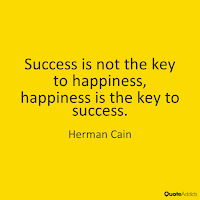2017 was a year that went by lightning fast. It seems like not so long ago I was reflecting on 2016 when I did the write up of
80/20 rule on my life/work balance timing review around this time last year. Now a year later, I'm reflecting on how my time was spent in 2017. Interestingly enough the overall profile of my life/work balance hasn't changed drastically if you look at the summaries, but once I dive a bit more into the detail it becomes evident that my time did take a knock in some areas.
I've been tracking my time on how I spend my life for three years and counting. I've still not developed an automated system yet for tracking, need to write an app that simplifies all this manual work, however I need to find the time to do this :-) Part of my personal projects which had taken a knock last year. Once I've automated this through an app, it should make Life/Work goals tracking much simpler, lets see what 2018 brings!
My Personal Value System - Personas
At the turn of 2017, I'd optimised my value system to the following elements, split between Personal & Professional lives:
This was supposed to reflect the priorities in my overall life, with the view that when it comes to time management, how I consume time should be relative to these priorities. In hindsight, this is more difficult to achieve in reality.
What happened in 2017?
Overall, the data for 2017 is shown below:
Putting this in pictures, it looks like this:
Comparing this to 2016, it looks pretty much similar at the high level:
Quick Analysis
2017 compared to 2016, the data shows roughly a balanced life/work split, although in reality I don't feel like it was balanced at all. In May 2017 I started a new job, which had me focused on work more than anything else. If I ignore the hard reality constraints, which is something I define as unavoidable, must-happen activities like Rest/Sleep, Driving-Car and Household maintenance, the picture looks a little different:
In 2017, I worked a total of 2383 hours.
The income-generating portion was spent working as a consultant, totals 2339 hours.
Accounting for 168 hours as the legal working hours per month, this works out to 13.33 months.
Assuming a full calendar month for leave & public holidays (11 working months), I've worked an extra 2.33 months in 2017!
Whilst time spent with Family exceeded Work time, my personal time for my own individual interests took a knock. I've hardly spent time on hobbies, pet projects as well as general health/fitness/well-being.
2017 Lessons Learnt
I worked more in 2017 than 2016, in 2018 I need to reduce work-time, to focus more on personal time. If Personal time invested as an Individual is prioritised higher than Work then I need to figure out a way of allocating more time in this area. I can't compromise on the Family aspect so the time has to come from somewhere else. Even if I leave consulting and enter full-time employment, I need to create space to value my personal endeavours. Pet projects and new ideas have had a dismal focus in 2017, making me wonder if it's worth any focus at all - the reality is quite different from aspirations or expectations. General Health & Well-being took big hits as well. Becoming an entrepreneur is hard, running a consulting company is also hard - are these just dreams, or am I serious about these? It maybe enough just to have three major focus areas: Family, Life & Work, unless Work converts to Entrepreneur / Running my own business - need to ask myself some serious questions here. Career-wise, my trajectory is looking promising but I don't know if I should resign to the notion of just spending the rest of my years working in a corporate and just settle...
Tracking 1:1 time with each child is also very challenging, with three kids where the age gaps are not that huge. The numbers do reflect quite poorly, what I've found though is that the interactions are captured as Family time - so it might not make sense anymore to focus on sole 1:1 time with each child. I still think this quite important, and need to figure out a way of creating these 1:1 times more frequently. I may have to kick-off the weekly family retrospectives to get this going again.
How did I enjoy Work in 2017?
So if I feel I'm working more than anything else, and the data shows a major part of my life is spent in the office, am I having a good time? Am I enjoying the work? Am I spending my valuable life-hours just to get by as a matter-of-fact, or am I actually enjoying the gig, and getting some fulfilment out of it? I've been tracking my level of enjoyment at work for the last few years - here's what the data shows.
I track feelings as:
Enjoyed - Good! When I had a good productive day, relationships good, achieved something, good flow-state.
Bad When I feel I should really be doing something else, had a bad encounter, things pear-shaped.
Indifferent / Neutral Neither good nor bad, just another day-at-the-office, uneventful.
Personal Time Time off to focus on personal topics: Leave, Family-Time or Personal Time Out
The theory is that if the number of Bad days increases to a level of causing alarm, then this signals an event for me to start reconsidering my options - like just leave the work and find something better. Looking at the data, there is still far greater upside than downside - 2017 has been a year of increased enjoyment at work, so there is really no reason for me to look elsewhere...unless the level of uncertainty in employment is increasing - which as I write this, might just be the case. I've learnt through the years never to be complacent, no matter how "secure" you might feel...so as I start 2018, I must still keep my options open.
2018 Key Goals/Objectives
In 2018 I need to get back to re-evaluating my state every three months. The themes to focus on for now:
- Find a way to reduce work hours to a point that it is actually sustainable, and not be the only thing that consumes me (even if I'm having a good time at work). Goal is to maintain a consistent level of 168 hours maximum per month on work. Need to do this by building an awesome management team, foster leadership & responsibility downstream. Implement behaviours from "Turn this Ship Around".
- Create space for Personal endeavours, focusing on leisure activities as well as health & fitness.
- My 3D printing experiments seized in 2017. Start again.
- Cycling virtually non-existent in 2017. Start again.
- I have a boxed Lego Robotics Mindstorm set waiting for me (gifted this toy for my birthday)
- Five programming books to read and new languages to code - waiting for a year, unopened.
- Read 24 books this year. In 2017 I completed just 9 books of the 38 I'd planned to read!
- Create the software for my RAGE tracking tool.
- Continue to nurture the family time to be as memorable & enjoyable as possible.





















